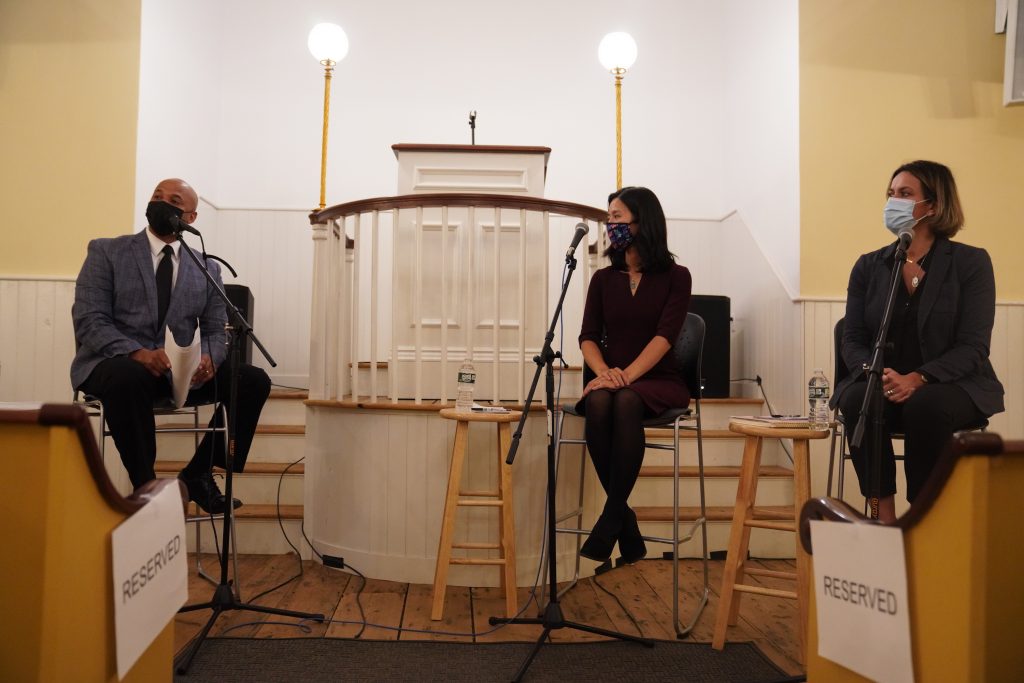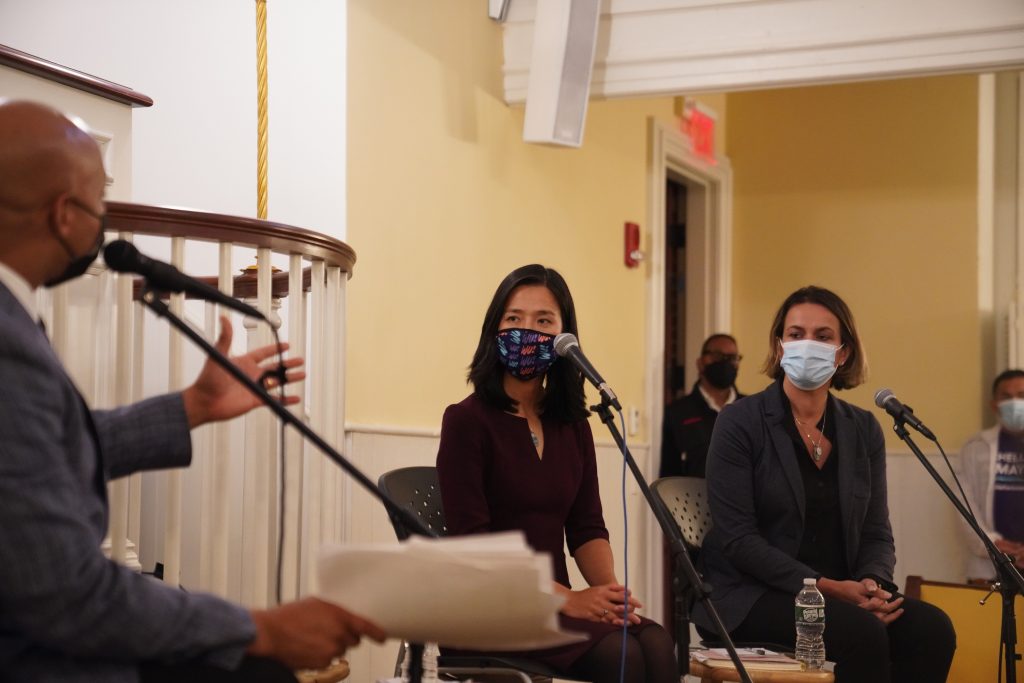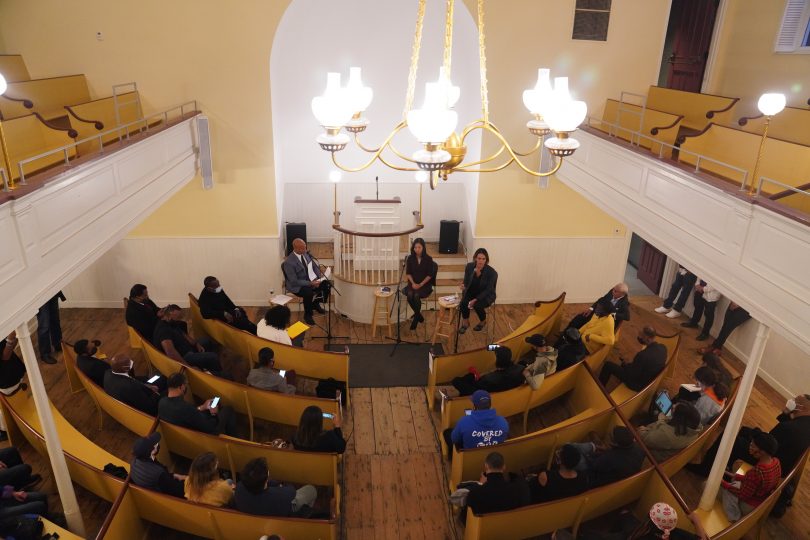By Brooke Lewitas
Boston University News Service
BOSTON — Boston’s mayoral candidates met over the weekend at the Museum of African American History for a forum presented by the Black Joy Project. Saturday’s debate between Annissa Essaibi George and Michelle Wu centered on issues facing Black men and boys, including education.
Essaibi George, a former teacher at East Boston High School, currently serves as Chair of the Committee on Education. Wu has not made education a focal point of her career but had previously rolled out a comprehensive plan for Boston Public Schools. Both candidates have children in the Boston Public School system.
Moderator John Barros, who attempted a run for mayor himself this year, asked both candidates questions about BPS policies.
The first focused on Individualized Education Plans (IEPs) and special education, a pertinent issue as Black students are placed in substantially separate classrooms — which indicate worse outcomes —at two times the rate of white students, according to a report commissioned by BPS.

Essaibi George used the question as an opportunity to discuss the problems with substantially separate classrooms. She also noted the value of the schools as a method of delivery of mental health services, as well as her goal in ensuring a full-time social worker in every BPS school. Last, she touched on families navigating the special education system.
“We have to make sure we’re working with these families, empowering them to make sure they have a full seat at the table,” Essaibi George said. “Too often, those conversations and that work is isolating for families that don’t have the background knowledge.”
Wu called for a “whole child, whole community approach to creating an anti-racist school system.” She said she plans to achieve this, in part, with a more diverse teaching staff. The need for more Black male teachers has been recognized by researchers for decades. The Biden administration recently issued an executive order with a plan to increase teacher diversity.
Wu also noted the relationship between IEPs and discipline in the schools, as well as the way that a student’s race can affect the way they are disciplined.
On the topic of discipline, Barros noted the higher suspension rates of Black and Latino boys and asked the candidates how they would work to dismantle the school-to-prison pipeline.
Both candidates advocated for restorative justice practices in schools.
“Suspension is not the answer,” Essaibi George said. “When we suspend kids, we’re removing them from the supports they need, and then we … wonder why our kids end up in the criminal justice system.”
Wu noted that she recently sponsored an Ordinance on Surveillance Oversight and Information Sharing, which is intended to reduce the information school resource officers can share.
Additionally, Barros questioned how the candidates would improve Black students’ access to Tier 1 schools. The School Quality Framework, which places schools in one of four tiers, was implemented to give families more information about school performance. According to a study by the Boston Area Research Initiative, Black students have the fewest Tier 1 seats available to them.

Both candidates said that the answer is not necessarily to increase the access to Tier 1 seats but to ensure that every seat in BPS is “one that we can be proud of,” according to Wu.
“Every seat, classroom, school, and school community should be at the highest level of quality and experience for our kids,” said Essaibi George.
Both candidates mentioned the importance of investing in Tier 2, 3, and 4 schools.
“As we look to spend our $1.3 billion budget, what is the percentage of each dollar that is going to student-facing services?” asked Essaibi George.
“It’s about ensuring we’re investing in the facilities … the schools that have the fewest resources, where enrollment is going down, are also the buildings where we see unacceptable conditions,” Wu said.
Wu also mentioned her plans to work with a student cabinet, invest in vocational training in schools, and close the gap for early childhood education.
Essaibi George also brought up early childhood education, specifically early literacy — a big part of her approach to educational equity.
“If we get that early literacy right, we do well by our kids for the rest of their lifetime.”
Boston’s mayoral election will take place on November 2, 2021. Find your polling location here, and learn more about where the candidates stand on the issues here.





